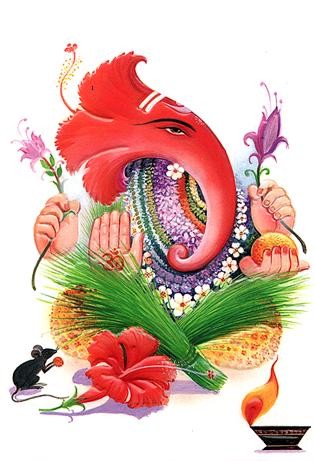Telugu Women Writers of the Last Millenium
Gangadevi
Gangadevi (14th Century) was the daughter of Kakatiyas and the daughter-in-law of the Vijayanagara Dynasti founded by Bukkarayalu and Harihara Rayalu. She was the wife of Kamaparayalu, the third son of Bukkarayalu. The rulers of both Kaktiya and Vijayanagar dynasties are indigenous Telugu communities. She wrote the true story of her husband's victory over Muslims in Madhura, entitled "Madhura Vijayamu." This Kavyamu (poem) is also known as "Veerakamparaya Charitramu," and contains 8 chapters.
Tallapaka Timmakka
Tallapaka Timmakka (15th Century) was the first woman to write in Telugu. She was the first wife of Tallapaka Annamacharya. Tallapaka family was a Brahmin family. She wrote Subhadhraklyaanamu in Telugu, a poem of 1170 verses. Although Arjuna of Mahabharat of North India was the hero of the story, she reenacted the story with Telugu culture, customs, sensuality and Telugu places.
Atukuri Molla
Molla (16th Century) was born into Atukuri family, a Kummari (potter) caste/tribe family. She wrote Ramayanamu in Telugu. This work is also known as Molla Ramayanamu. She used simple Telugu instead of Sanskrit.
Tirumalamba
Tirumalamba wrote "varadambica parinayamu," the story of marrriage of Achyuta Devarayalu, in Sanskrit language.
Leelavati
She was the daughter of a Brahmin mathematics professor Bhaskaracharya. She wrote a text of mathematics called "leelavati ganitamu' in Sanskrit.
Triveni
Triveni is the daughter of Udayendrapuram Anatacharyulu and the wife of Prativadibhayankaram Venkatacharyulu. Her contributions include unpublished Lakshminadha Sahasramu, Ranganadha Sahasramu, Srirangabhydayamu, Tatvamudra bhadrodayamu, Sukasandesamu, Bhrungasandesamu etc. in Sanskrit language.
Madhuravani
Madhuravani's original name was Sukavani. She was a court poetess of King Raghunadha. She translated Raghunadha's Telugu Ramayanamu into Sanksrit. However, only part of this Sanskrit "Ramayana sarakavya tilakamu" is available.
Rangajamma
Ranagajamma, also known as Rangaji, was the daughter of Pasupuleti Mangamamba and Venkatadri. She is a wife (or concubine) and a court poetess of King Vijayaraghava (17th century). She is considered to belong to a Vesya (concubine) community. However, these Vesyas were highly respected and weilded lot of power and social status in the Telugu country. Her contributions include Mannaru Dasavilasamau.
Muddupalani
Muddupalani was a court poetess and a concubine of Marathi King Pratapasimha (18th century). Her father was Mutyalu and mother was Potiboti. She wrote sensual poetry called 'Radhika Santvanamu' to prove that women can write lust and sex as well as or even better than men! Being a Vesya (concubine or prostitute) it was not
difficult for her to write about lust and sex. Her poetry is considered sweet, in which she uses a lot of popular sayings and proverbs effectively.
Tarigonda Venkamamba
Tarigonda Venkamamba (19th century) has a special place in Telugu women writers. She was a child widow. Child marriages (with old men ready to die) were common in 19th century. She was born into a family of Nandavareeks sect of Brahmin tribe/caste. Her father was Krishnayamatya and mother was Mangamamba. Her teacher was Prof.
Subrahmnayudu. Her poetic contributions include Venkatachala Mahatmyamu, Vasista Ramamyanamu, Rajayogasaramu, Bhagavatamu, Krishnamanjari. Almost all of her writings are devotional, religious and philosophical.
Kotikalapudi Seetamma
Kotikalapudi Seetamma (late 19th and early 20th century) was a follower of Kandukuri Veeresalingamu Pantulu. Her contributions include Ahalyabai, Sadhuraksha Satakamu, Bhaktimargamu, Satidharmamu etc. She presided over the first Telugu Women Writer's meeting called Pradhamandhra Mahilasabha in Bapatla in 1913.
Other Women Writers
Some other famous 19th century women are: Bhandaru Achchamamba, Burra Suramamba, emuri Saradamba, Mamidanna Subhadhramma, Seeramu Subhadhrayamma, Avadhoota Gnanamaba, Jooloori Tulasamma, etc.
Later writers include: Chilakapati Seetamba, Chebrolu Saraswatidevi, Chilakapati Seetamba, Gudipudi Indumatidevi, Burra Kamaladevi,Sthanapati Rukminamma, Ganti Krishnavenamma, Dronamraju Lakshmibayamma, Kanaparti Varalakshmamma, Somaraju Indumatidevi, Chavaqli Bangaramma, Pallapragada Viswasundaramma, Krottapalli
Lalita, Utukuri Lakshmikantamma, etc.
In the contemporary time (later part of the 20th century), a number of women novelists became popular: Jayanti Suramma, Pulugurti Laksjminaramamba, Seeramu Subhadramba, Kanaparti lakshminaramma,Illindala Saraswatidevi, Malati Chandoor, Lata, Muppalla Ranganayakamma, Vasireddi Seetadevi, Koddori Kousalyadevi,
Yaddanapudi Sulochanarani, Binadevi, P. Anandaramam, Dvivedula Visalalkshi, D. Kameswari, Madireddi Sulochana, Ramalakshmi,Asalata, Parimala Someswar, etc.



6 Comments:
If u have some time, update this info on wiki :(
This was an awesome post! Loved it!
~~Chelly
Nice informative post. I hardly knew about any of these writers.
An admirable effort,Very much impressed.
ripta sargavi
Telugu talli sevalo oka chinna
kusumanjali.Slaghaneeyam.
telugu ani chudagane pranam lechivachindi telugu veluguni ichinnadi
Post a Comment
<< Home